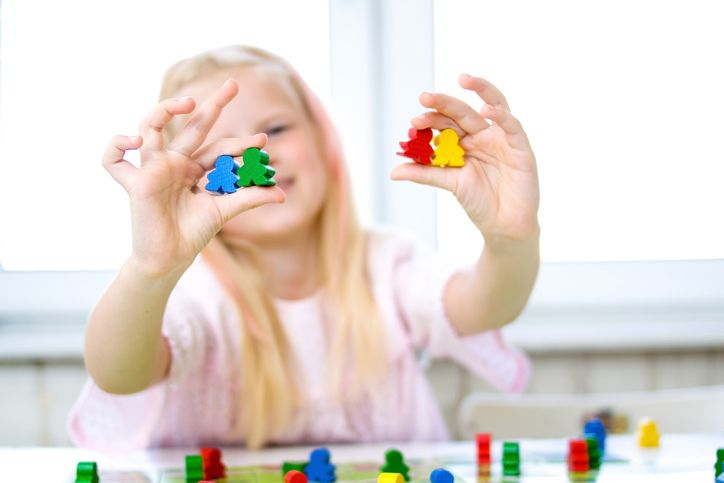Are you concerned your child might not be empathetic enough? Empathy is the ability to imagine how someone else feels in a particular situation and respond with care. It’s a very complex skill to develop, and some children struggle to grasp that others feel differently than they do. Luckily, empathy is something children can learn and practice. We use play therapy to teach empathy, but there are a host of other options out there. The basics of empathy include being able to:
- Understand that your child is an individual
- Understand that others have different thoughts and feelings than they do
- Identify common feelings in others – anger, happiness, surprise, sadness, etc.
- Ability to look at a situation and imagine how someone else might feel in that situation
- Can identify a possible appropriate response to that situation
What to Do if Your Child is Struggling with Empathy
Many parents fear their child lacks empathy, so you are not alone. Parents often share with us that their child engages in antisocial behaviors that appear callus or unemotional. Their children do not, or can not, take another person’s feelings into account during playtime or regular activities. It can be excruciating to see your child behave like this if you are a particularly empathic person.
Name the Emotion
It is crucial to use times when your child might be having a tough time to teach them an awareness of their emotions. It might seem obvious to you what they feel, but it may not be evident to them. Say something like, “It sounds like it was hurtful that no one wanted to play with you at recess,” to help them name the emotion. Naming the feeling in themselves is the first step to identifying it in others.
Teach the Signs of Emotions
Like many other teachable things, here is the link to some flashcards that teach children to identify emotions. Once they have mastered the flashcards, you can start pointing out these emotions in real life. For example, if you see someone talking happily on the phone, ask your child to name what they think that person is feeling. With practice, they will learn to link other people’s emotions to how they feel when they experience the same sentiment.
What to Do if Nothing is Working
Some children struggle with empathy – it does not make them a bad kid or you a lousy teacher! It is no different than the kid that isn’t all that athletic. They need a coach to help them. It might be time to consider if your child should see a therapist. We use Play Therapy at our office to help young children practice empathy. In play therapy, we practice:
- Pointing out feelings in others and naming them
- Books and storytelling to help a child feel the emotion we are trying to teach
- Dolls, puppets, and toys help us act out the feelings other people might be feeling
- Training caregivers to keep teaching outside the sessions
The last point is critical to our process. To help empathy grow outside our sessions, a child’s caregiver must help reinforce what they learn. We teach caregivers how to be emotionally in tune with the child by emulating our processes in the play therapy sessions. With time and practice, the child and the caregiver learn about emotional awareness and how to be more empathetic in regular life.
Conclusion
Only some children take to learning empathy like a fish to water. Some children need a little more guidance to develop this crucial skill. If you are worried your child is not as empathetic as they should be for their age group, try making it into a game. Teach your child first to name the emotion they feel so they can identify what that feeling is. Once they pinpoint the feeling, teach them how to recognize it in others. The idea is to get them to link how they feel in a situation and how others might feel in that situation. If you feel like your child needs more guidance, Strategic Family Therapy can help. Your child will engage in play therapy to teach empathy with a licensed counselor. The therapist will also incorporate the rest of the family to continue these teachings at home.
Family Strategies Counseling & Mediation is a therapy office serving the Chicagoland Area. We offer individual and couples counseling and child and family therapy. Call our office at (708) 798-5433 or email us at info@Family-Strategy.com for appointment details.

